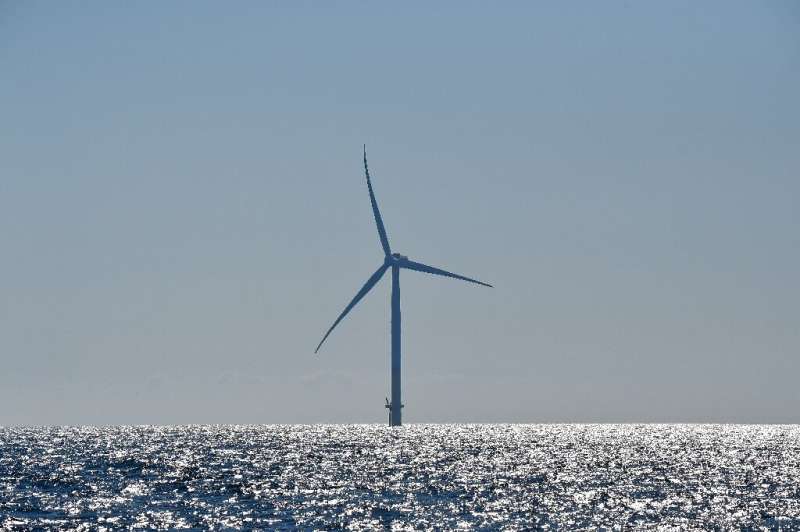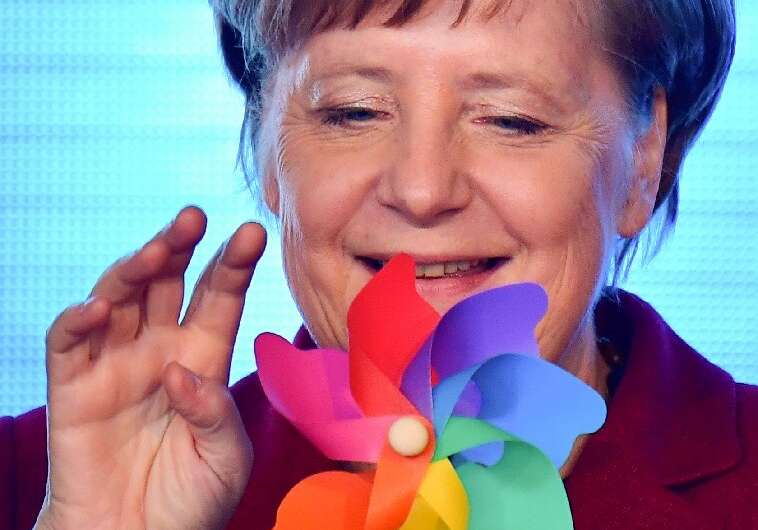The government now expects to slash emissions by 65 percent by 2030 compared to 1990 levels
The German government said Wednesday it would set more ambitious targets to reduce CO2 emissions after a landmark ruling by the country's top court declared a flagship climate protection law "insufficient".
Under the new targets, rhe government expects to slash emissions by 65 percent by 2030 compared to 1990 levels, going further than the current 55 percent reduction target, Finance Minister Olaf Scholz said at a press conference in Berlin.
The cut will reach 88 percent by 2040, with the goal of bringing Germany to carbon neutrality by 2045, five years earlier than previously expected.
"We want to make our goals more precise," Scholz said, adding that the "ambitious but achievable" reform would be reviewed by the cabinet next week.
The new move, criticised by activists as insufficient, comes after Germany's Constitutional Court ruled last Thursday that the original national emissions goals flouted the rights of younger people because they omitted targets for reductions beyond 2030.
The current climate protection law risked to "irreversibly offload major emission reduction burdens" onto the period after 2030, thereby "violating the freedoms" of future generations, the court said.
It ordered an improved plan to be put forward by December 2022.
The government's accelerated reaction comes as environmental issues are fast becoming a flashpoint in September elections.
For the first time, both Chancellor Angela Merkel's conservatives are feeling the heat from the ecologist Greens.
Buoyed in part by the youth movement Fridays for Future school strikes, the Greens are leading popularity surveys less than five months before a general election.
Poll pressure
Under pressure to show it is taking environmental issues seriously ahead of September's elections, Merkel's outgoing right-left coalition government has said it aims to revise its climate targets before the end of its term.
"The constitutional court ruling has put wind in the sails of climate protection," said Environment Minister Svenja Schulze at Wednesday's press conference.
German Chancellor Angela Merkel said that "young people have reminded us that we are going too slowly rather than too quickly"
The new targets were "a fair offer to younger generations" who would now "not carry the biggest burden", she said.
She added that there was now "a race to the top" in terms of environmental policy.
"The debate is no longer about whether we should do something, it is about who has the best ideas," she said.
Speaking at a parallel event in Berlin on Wednesday, Merkel said that "young people have reminded us that we are going too slowly rather than too quickly" on climate change issues.
The constitutional court ruling "has told us: you can't just have freedoms for the generations alive today, you must also think about the freedoms of future generations", Merkel said.
"This is a new legal perspective that could have many consequences and impresses upon us that we must do more."
'Not enough'
Experts said that Germany would need dramatic measures if it is to meet the new emissions targets.
"The targets for expanding renewable energies will have to be quadrupled at least," Claudia Kemfert, energy and environmental expert at the German Institute for Economic Research (DIW).
They would also require more support for areas such as rail travel, building renovation and charging infrastructure, she said.
Environmental groups and opposition parties meanwhile warned that the targets still did not go far enough.
"A reduction of 65 percent is not enough," said German Greenpeace campaigner Lisa Goeldner on Twitter, urging the government to target a 70 percent cut in emissions by 2030 instead.
"This is a big step for the coalition, but a small step for the climate," said Lorenz Goesta Beutin of the radical Left party.
© 2021 AFP

























